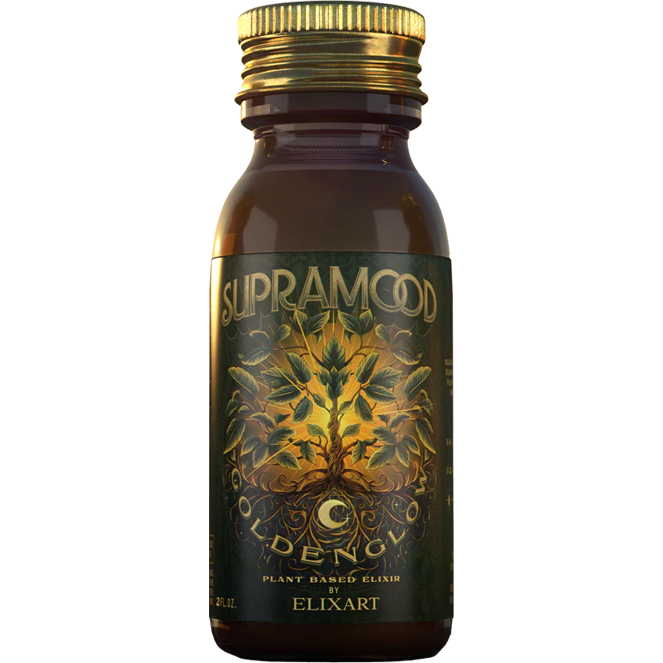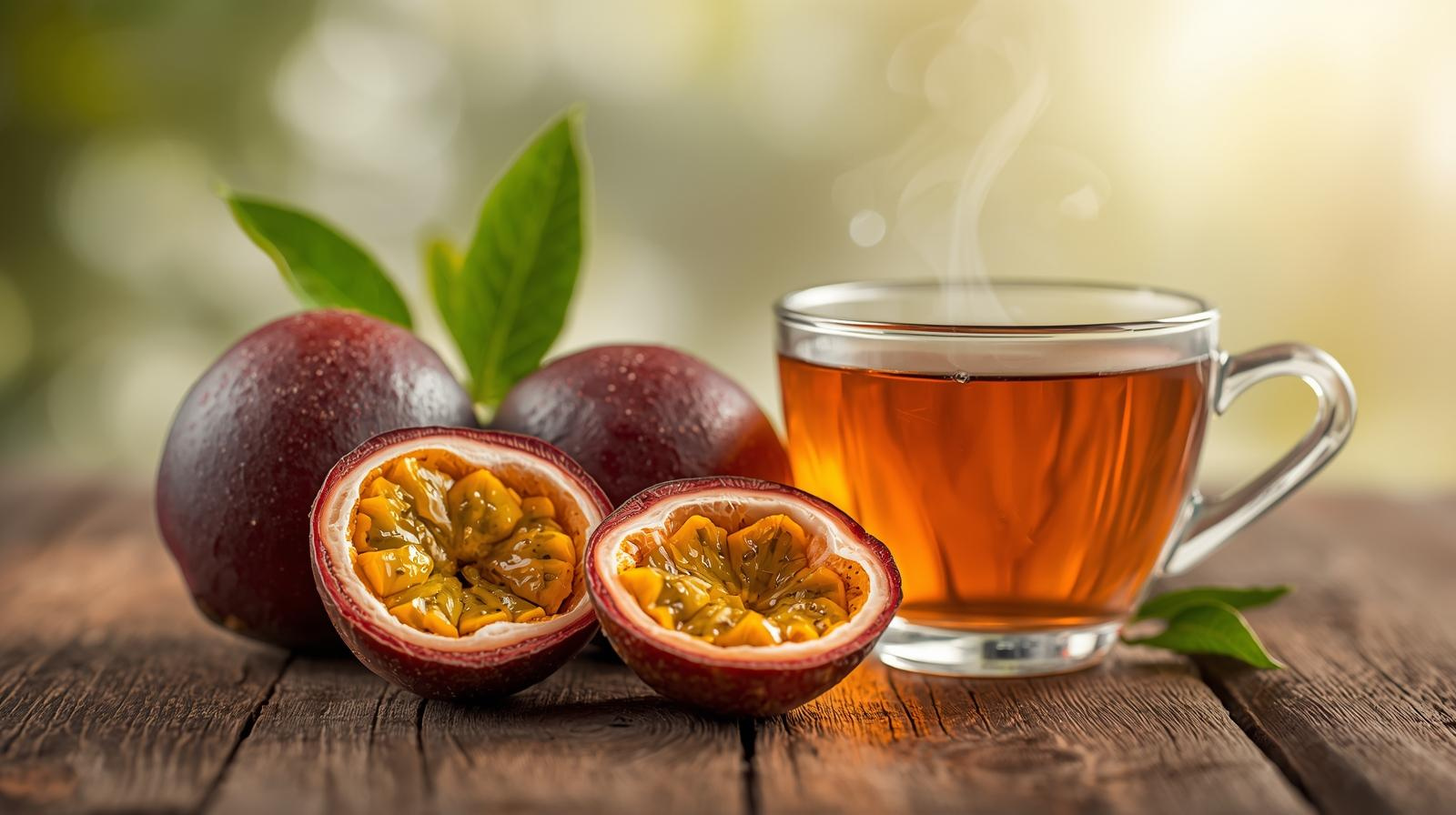Table of Contents
- Introduction to the Golden Root for Mind and Body
- Turmeric Plant: Nature’s Medicine Chest
- Turmeric and Mood: Can It Really Make You Happier?
- The Dopamine Connection: Does Turmeric Influence Brain Chemistry?
- Memory and Cognitive Health: How Turmeric Supports the Mind
- Hormonal Harmony: What Does Turmeric Do for Hormones?
- Turmeric for Depression: Dosage and Practical Use
- Brain Booster in Daily Life: How to Use Turmeric for Mental Clarity
- Broader Medicinal Benefits of Turmeric
- GoldenGlow by Supramood
- Conclusion
- FAQ's
Introduction to the Golden Root for Mind and Body
If you walk into a spice market in India, you’ll find vibrant orange-y powders, and one of the richest is turmeric. This golden root has been used for thousands of years in Ayurvedic medicine and other traditional healing systems to address a range of ailments.
Today, as the world becomes more open to plant-based support for mental and physical wellness, we see turmeric stepping into the spotlight, not just as a culinary spice, but for its role in mood, brain health, and hormones. When we talk about turmeric for mood, turmeric medicinal uses, or even turmeric hormones, we’re reaching into a place where ancient wisdom meets modern science. And that’s what we’re exploring here: how a humble root can influence your mind, your mood, and your hormonal balance.
Key Points
- Turmeric ( Curcuma longa ) has a long history in traditional medicine and is now gaining scientific support for its effects on mood, the brain, and hormones.
- The active compound curcumin offers anti-inflammatory, antioxidant, and neuroprotective properties.
- Emerging research suggests turmeric can improve mood, support dopamine and serotonin balance, enhance cognitive health, and help regulate hormones such as cortisol, insulin, and estrogen.
- Practical use of turmeric for mood includes proper dosage, absorption enhancement (black pepper, healthy fats), and consistent use in daily life.
- Beyond mood and brain, turmeric serves broader medicinal purposes: immune support, digestive health, and chronic disease prevention.
Turmeric Plant: Nature’s Medicine Chest
Before diving into mood and brain effects, let’s ground ourselves in what this plant actually is, how it’s been used, and why we’re paying attention to it.

Turmeric Plant Medicinal Uses
The medicinal turmeric plant, Curcuma longa, has been used in traditional systems to treat inflammation, wounds, digestive issues, and to support immune health. Healers would apply fresh paste to injuries, use the powder in tonics for the digestive system, and recommend it for general “heat” or imbalance in the body. Because inflammation and poor digestion often underlie many health issues, turmeric earned a place in the herb cupboard of centuries-old medicine.
Medicinal Properties of Turmeric
At the heart of turmeric’s appeal is curcumin, its active compound. Research shows curcumin carries strong anti-inflammatory, antioxidant, and neuroprotective properties. It helps the body reduce oxidative stress (which damages cells), it encourages repair processes, and it supports the brain’s resilience. In short, curcumin helps protect the brain and body from wear and tear, and that sets the stage for better mood and brain health.
Medicinal Importance of Turmeric
In modern research, turmeric moves beyond the spice rack. Studies link it to the prevention of chronic diseases, improving mood balance, and maintaining cognitive clarity. Because so many health conditions share inflammation and oxidative stress as underlying causes, turmeric’s role becomes especially relevant. It doesn’t just act in one niche; it supports whole-body wellness, and by doing so, supports the mind too.
Turmeric and Mood: Can It Really Make You Happier?
Now we get to the heart of the matter: does turmeric actually influence how you feel? Can it lift your mood, calm your mind, and help you find more balance?
Can Turmeric Improve Your Mood?
Clinical findings suggest yes, at least to a degree. Studies show that curcumin supplementation may improve symptoms of depression and anxiety. For instance, some trials observe improved mood scores when curcumin is added. In effect, turmeric for mood isn’t just a wishful thought; there is evidence that the root supports serotonin and dopamine balance, which are key neurotransmitters for mood regulation.
Can Turmeric Boost Your Mood Naturally?
Yes, and this matters. While synthetic antidepressants and mood stabilizers certainly have their place, some people seek plant-based alternatives or additions. Turmeric presents one such option: a whole-food-derived support that works across multiple pathways (inflammation, gut-brain, neurotransmitters). Using turmeric as part of a broader wellness approach means you’re aiming for natural support rather than depending solely on synthetic options.
Why Does Turmeric Make Me Feel Better?
Here’s what’s going on under the hood: turmeric reduces body-wide inflammation. High inflammation can interfere with mood by impacting brain chemistry, hormonal signaling, and even gut health. Turmeric also supports the gut-brain connection: a healthy gut means better neurotransmitter production, improved mood, and fewer energy slumps. Finally, when neurotransmitters like serotonin and dopamine are more balanced (thanks to curcumin’s influence), you feel clearer, more resilient, and more stable.
The Dopamine Connection: Does Turmeric Influence Brain Chemistry?
Let’s zoom in on one chemical messenger: dopamine. If you’ve ever felt the thrill of motivation, reward, or focus, dopamine was in the mix. Could turmeric support that?

Does Turmeric Increase Dopamine?
Research from neuroscience suggests curcumin can support healthy dopamine regulation. What does that mean? It means turmeric isn’t necessarily blasting your brain with dopamine (which could lead to imbalance), but rather supports the systems that keep dopamine functioning well. Some studies show curcumin improves activity in brain reward centers and mood networks. So when you include turmeric regularly, the subtle effect is better emotional resilience, more motivation, and improved mood that stabilizes over time.
Memory and Cognitive Health: How Turmeric Supports the Mind
We’ve covered mood; now we widen the lens to cognition and memory. Because often, mind-health is about both feeling good and thinking clearly.
Turmeric Compound Could Boost Memory and Mood
Some studies on older adults show that regular curcumin intake is linked to improved memory performance and slower cognitive decline. So yes, there is evidence that turmeric doesn’t just lift mood, but supports memory too.
Does Turmeric Help the Mind?
Absolutely. One of the key ways turmeric helps is by reducing brain inflammation and oxidative stress; two major players in cognitive fog, poor attention, or early decline. When the brain is less inflamed, it runs more smoothly, so your focus improves, your clarity returns, and your thinking feels sharper.
Does Turmeric Regrow Brain Cells?
Here we get into deeper science: one marker of brain health is BDNF (Brain-Derived Neurotrophic Factor). Higher BDNF means better neuron survival, growth, and connection. Some research indicates that curcumin may encourage neurogenesis (the growth of new neurons) and protect existing ones. So while we’re not talking “regrow your entire brain,” we are seeing support for brain cell resilience and renewal, which matters for long-term brain health.
Hormonal Harmony: What Does Turmeric Do for Hormones?
Mood and brain health don’t act in isolation; hormones play a massive role. Let’s explore how turmeric supports hormonal health.
What Does Turmeric Do for Hormones?
When you incorporate turmeric, you’re supporting hormonal balance in several ways.
First: cortisol, the stress hormone. Chronic stress elevates cortisol, which ruins mood, wrecks sleep, and tosses hormonal balance out of whack. Curcumin helps reduce excessive cortisol release.
Then, estrogen metabolism, turmeric supports healthier estrogen pathways, which matters especially for women but also for men.
Finally, insulin stability, turmeric’s role in supporting healthy insulin sensitivity links to mood and brain health (since blood-sugar swings affect mood and cognition).
So turmeric hormones are really about support, balance, and regulation.
Turmeric for Depression: Dosage and Practical Use
Having laid the foundation, let’s get practical: how much turmeric? How to use it? What to watch out for?
How Much Turmeric a Day for Depression?
If you’re exploring turmeric for depression, research supports using around 500-1,000 mg of curcumin daily, often in divided doses, and partnered with black pepper (piperine) for better absorption. Always check with your healthcare provider before starting, especially if you’re on medications or have underlying conditions.
Turmeric Depression Dose
You can use turmeric in several forms: standardized curcumin extract capsules, “golden milk” (turmeric + milk + black pepper), or blended into smoothies/foods. The key is consistent use and ensuring absorption. Safe use means avoiding excessively high doses without guidance and being mindful of any medication interactions.
Brain Booster in Daily Life: How to Use Turmeric for Mental Clarity
Let’s talk about how you can bring turmeric into everyday life, not just as a supplement, but as a habit.
How to Use Turmeric for a Brain Booster?
Here are realistic, simple ways:
- Add a pinch of turmeric and black pepper to your morning smoothie with healthy fat (like coconut oil or almond butter) for better absorption.
- Make “golden milk” at night: warm plant milk, turmeric, cinnamon, and a dash of black pepper, soothing and supportive for mood and sleep.
- Use a high-quality curcumin supplement if you want a more targeted dosage.
- Ensure you pair turmeric with healthy fats (support absorption) and black pepper (piperine enhances curcumin’s availability).
By making turmeric part of your routine, not just as an occasional spice, you support mental clarity, mood stability, and brain health over time.
Broader Medicinal Benefits of Turmeric
Now we zoom out and look again at the bigger picture: turmeric’s broader role beyond mood and brain. From supporting joint health and immunity to promoting heart wellness and healthy skin, turmeric offers whole-body benefits that extend far beyond the mind.
Turmeric Plant Medicinal Uses
Revisiting: turmeric helps with immune support, digestive health, wound healing, and inflammation management. These uses have a long history, and they still apply today in integrative wellness.
Medicinal Properties of Turmeric
The curcumin-driven effects (anti-inflammatory, antioxidant, neuroprotective) underlie nearly all of turmeric’s benefits. By giving your body tools to reduce oxidative stress and repair damage, you’re investing in longevity and resilience.
Medicinal Importance of Turmeric
Ultimately, turmeric supports mental, physical, and emotional well-being. Its role in mood, cognition, hormones, and broader health means it can serve as a cornerstone of holistic wellness, exactly the kind of approach that aligns with Supramood’s focus on natural, plant-based support.
GoldenGlow by Supramood
If you’re looking for a carefully formulated product that includes turmeric among other potent botanicals, check out GoldenGlow by Supramood.
It blends rare and exotic herbs with 12 years of formulation expertise to deliver support for mood, focus, and overall well-being. The inclusion of turmeric here shows how Supramood places this golden root in a wider botanical context, supporting your mood, brain, and body in harmony.
Conclusion
In sum: turmeric is far more than a kitchen spice. The medicinal turmeric plant delivers active compounds like curcumin that support mood, brain, and hormones. From reducing inflammation, influencing neurotransmitters such as dopamine and serotonin, to supporting cognitive health and hormone balance, turmeric shows up. This root offers real potential for anyone exploring turmeric for mood, curious about turmeric medicinal uses, or wanting to understand turmeric hormones. By using it consistently, mindfully, and paired with absorption aids like black pepper and healthy fats, you’re leaning into a plant-based path for mental clarity, emotional stability, and long-term wellness. And with products like GoldenGlow by Supramood, you get a thoughtfully designed blend that brings turmeric into your lifestyle in a meaningful way. Embrace the golden root to let it support your mind, your mood, and your body in tandem.
FAQs
Is turmeric good for depression and anxiety?
Yes. Studies suggest curcumin, the active compound in turmeric, can help reduce symptoms of depression and anxiety by balancing serotonin and dopamine while lowering inflammation.
What is a medicinal turmeric plant?
The medicinal turmeric plant (Curcuma longa) is a root herb used for centuries in Ayurvedic medicine for its anti-inflammatory, antioxidant, and healing properties.
What are the medicinal purposes of turmeric?
Turmeric supports mood, brain function, hormone balance, immune health, and digestion. It’s also used to reduce inflammation and protect against chronic diseases.
Does turmeric increase dopamine?
Yes, curcumin helps regulate dopamine levels in the brain, promoting motivation, focus, and emotional stability.
How does turmeric make you feel better?
Turmeric reduces inflammation, supports gut health, and balances mood-regulating neurotransmitters, helping you feel calmer, clearer, and more energized.








Leave a comment
All comments are moderated before being published.
This site is protected by hCaptcha and the hCaptcha Privacy Policy and Terms of Service apply.